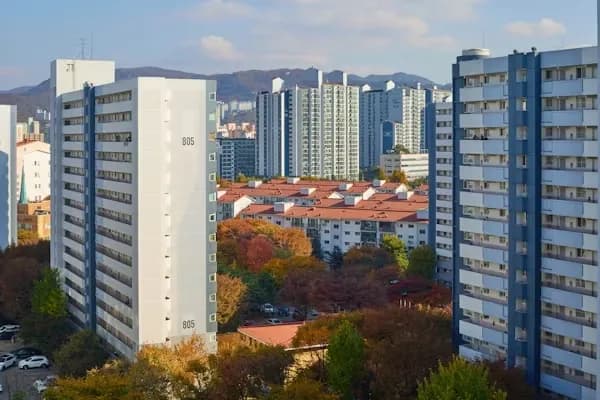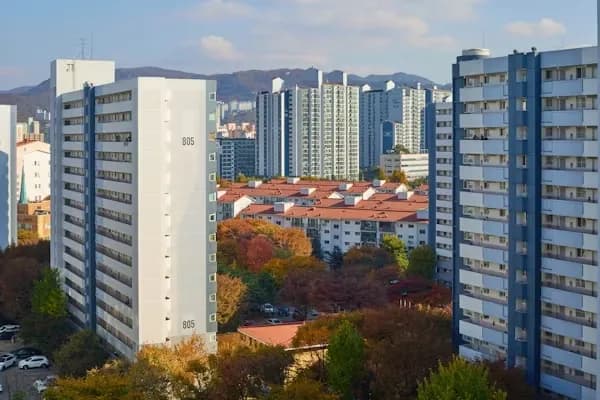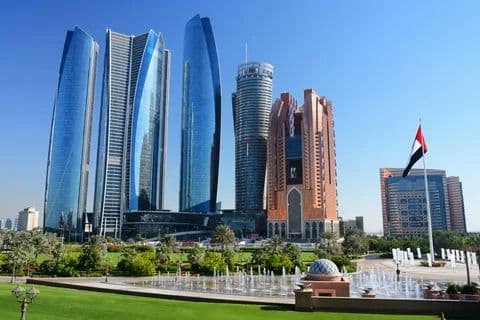Understanding the difference between freehold and leasehold properties is vital for anyone looking to invest in Dubai real estate. Whether you’re an expatriate or a local resident, knowing how these two types of ownership differ will significantly influence your financial decisions, rights, and long-term plans. This article breaks down the differences, advantages, and drawbacks of each type, giving you clarity before purchasing any property for sale in Dubai.
Difference Between Freehold and Leasehold
The difference between freehold and leasehold lies in the nature of property ownership. Freehold means complete and permanent ownership of the property and the land it sits on. In contrast, leasehold allows ownership of the property for a fixed term, often up to 99 years, but not the land beneath it. This distinction affects resale value, flexibility, and legal rights, making it crucial to fully understand the difference between freehold and leasehold Dubai before making a purchase.
What Is Freehold Property in Dubai?
Freehold property in Dubai allows individuals, both citizens and expats, to have full ownership of a property and the land it occupies. This concept was introduced to attract foreign investment and promote long-term residence.
Full Legal Ownership
Freehold ownership gives you complete rights over the property and land, without any time limitations. Your name is registered with the Dubai Land Department, and you can sell, rent, or pass on the property without external approvals.
Open to Foreigners
One of the key attractions of freehold properties in Dubai is that they are open to foreign nationals. Foreign investors can buy properties in designated freehold zones, enjoying similar ownership rights as UAE citizens.
Flexibility and Control
Owners have the freedom to modify or renovate the property as they wish, which is not usually allowed in leasehold contracts. This level of control makes freehold attractive to those planning long-term residence or investment.
Legal Security
The property is protected under Dubai property laws and ownership, giving peace of mind to buyers. Once purchased, no landlord or government body can reclaim the property, provided all laws are followed.
What Is Leasehold Property in Dubai?
Leasehold properties involve a long-term lease agreement rather than complete ownership. Buyers gain the right to occupy or rent the property for a specified period, typically 30 to 99 years.
Time-Limited Ownership
Unlike freehold, leasehold doesn’t grant perpetual ownership. After the lease term expires, rights revert to the landowner unless renewed. This time restriction defines the difference between a leasehold and a freehold.
Limited Control
Owners cannot modify, sublet, or sell the property without the freeholder’s approval. Lease agreements often come with clauses that limit your ability to make structural changes or lease the property freely.
Lower Entry Costs
Leasehold properties generally have lower initial purchase prices. This makes them attractive to buyers with smaller budgets or those not planning to live in Dubai long-term.
Not Eligible for All Nationalities
Leasehold zones are more restrictive, and some leasehold arrangements are only available to UAE nationals or GCC citizens, further defining the difference between a freehold and leasehold in Dubai.
Key Differences Between Freehold and Leasehold
This section explains the difference between freehold and leasehold in more detail by highlighting the main factors that separate these two ownership models.
1. Ownership Duration
Freehold properties provide permanent ownership, while leasehold properties come with an expiration date, typically up to 99 years. After this, the property reverts to the original landowner.
2. Property and Land Rights
In freehold, you own both the structure and the land. In leasehold, your ownership is limited to the structure, not the land, which belongs to the freeholder.
3. Flexibility and Modifications
Freehold owners can renovate, alter, and lease their property freely. Leasehold owners often need written permission for modifications, restricting flexibility.
4. Resale and Transfer
Freehold properties are easier to sell or transfer without needing approval from another party. Leasehold sales may require the landowner’s consent and come with additional legal procedures.
5. Long-Term Value
Freehold investments tend to retain or increase their value better over time, whereas leasehold properties may depreciate as the lease term decreases. This impacts your ability to resell or generate rental income.
Understanding the difference between free hold and lease hold can make all the difference when evaluating potential returns on your property investment.
Benefits of Buying Freehold Property
Purchasing a freehold property offers several distinct advantages that make it a preferred option for many investors and homebuyers in Dubai.
1. Long-Term Investment
Freehold offers permanent ownership, making it ideal for those planning to stay in Dubai long-term or looking to build generational wealth. This ownership structure is a core part of the Dubai real estate ownership guide for serious investors.
2. Full Autonomy
As a freeholder, you enjoy full control over your property, rent it, sell it, renovate it, or even pass it on to heirs. This autonomy is a major advantage over leasehold ownership.
3. Capital Appreciation
Freehold properties generally appreciate better over time, especially in high-demand areas. This makes them more appealing for those looking to invest in property for sale in Dubai for future resale.
4. Legal Clarity and Stability
With freehold, there’s no ambiguity about your rights or the property’s future. The ownership is recorded under your name with the Dubai Land Department, offering stability under Dubai property laws and ownership.
Cons of Buying Freehold Property in Dubai
While freehold ownership has many advantages, it also comes with potential downsides that should be considered before making a purchase.
1. Higher Initial Costs
Freehold properties tend to cost more upfront compared to leasehold options. This higher price point can be a barrier for first-time buyers or those with limited budgets.
2. Service and Maintenance Fees
Many freehold communities charge high service fees for maintenance, security, and community amenities. These costs can add up over time, especially in upscale areas.
3. Limited Availability
Only certain zones in Dubai are designated as freehold, which can limit your options if you’re looking for a specific location or type of property.
4. Market Sensitivity
Freehold properties are more exposed to market fluctuations. A sudden drop in demand can affect resale value or rental income, making market research essential before investing.
Freehold vs Leasehold: Which Should You Choose?
The decision between freehold and leasehold depends on your goals, budget, and how long you plan to stay in Dubai. If you’re looking for full control, long-term stability, and asset appreciation, freehold is likely your best option. It’s especially suitable for expatriates committed to buying property in Dubai as an expat for permanent residence or investment. On the other hand, if you’re on a budget or not planning to live in Dubai long-term, leasehold may offer more flexibility and lower costs. But remember, understanding the difference between freehold and leasehold Dubai is crucial before committing.
Best Freehold Areas in Dubai
Dubai offers several highly sought-after freehold zones, especially for foreign investors.
Dubai Marina
A waterfront area popular among expatriates, offering high-end apartments with excellent rental yields.
Downtown Dubai
Home to the Burj Khalifa and Dubai Mall, it’s a central location ideal for luxury living and high resale value.
Palm Jumeirah
An iconic man-made island known for its luxury villas and exclusive lifestyle.
Jumeirah Village Circle (JVC)
A family-friendly, affordable option among freehold communities that’s seeing rising investor interest.
Business Bay
Perfect for professionals and entrepreneurs, Business Bay offers a mix of residential and commercial freehold properties.
Best Non-Freehold Areas in Dubai
Non-freehold areas, typically open to UAE and GCC nationals, may offer more traditional settings and often lower costs.
Deira
One of Dubai’s oldest neighborhoods with a strong commercial vibe.
Al Barsha South
Offers a quieter residential experience with easy access to schools and hospitals.
Mirdif
Popular among families for its villas and green spaces.
Bur Dubai
A historical area offering cultural richness and commercial activity.
Al Qusais
An older neighborhood with affordable housing options, ideal for those seeking long-term leases without ownership.
Find Your Ideal Dubai Property with Roofs & Roots Today
Whether you’re looking for a luxurious apartment in Downtown Dubai or a cost-effective leasehold property in Al Barsha, Roofs & Roots is your trusted partner. With an extensive portfolio of property for sale in Dubai, our expert consultants help you navigate the complexities of the market.
Visit Roofs & Roots to browse listings, get legal advice, and receive personalized support. Our team ensures that whether you’re interested in freehold or leasehold, your property journey is smooth, secure, and tailored to your goals.
FAQs
Is freehold better than leasehold?
Yes, freehold is generally considered better for long-term investments due to full ownership, resale freedom, and asset appreciation. However, it comes with a higher cost.
What will happen after 99 years of leasehold in Dubai?
After the lease expires, the property reverts to the landowner unless the lease is renewed. Renewal terms vary based on developer agreements and local laws.
Is it worth buying a leasehold?
Yes, especially if you’re looking for a lower-cost entry into the market. Leasehold can be ideal for short- to medium-term occupancy or investment.
What are the disadvantages of leasehold?
Disadvantages include limited ownership duration, restricted renovation rights, potential for non-renewal, and generally lower resale value.
Is buying a leasehold a mistake?
Not if you understand the risks and are clear about your goals. It’s important to evaluate the difference between freehold and leasehold to make a suitable choice for your situation.






